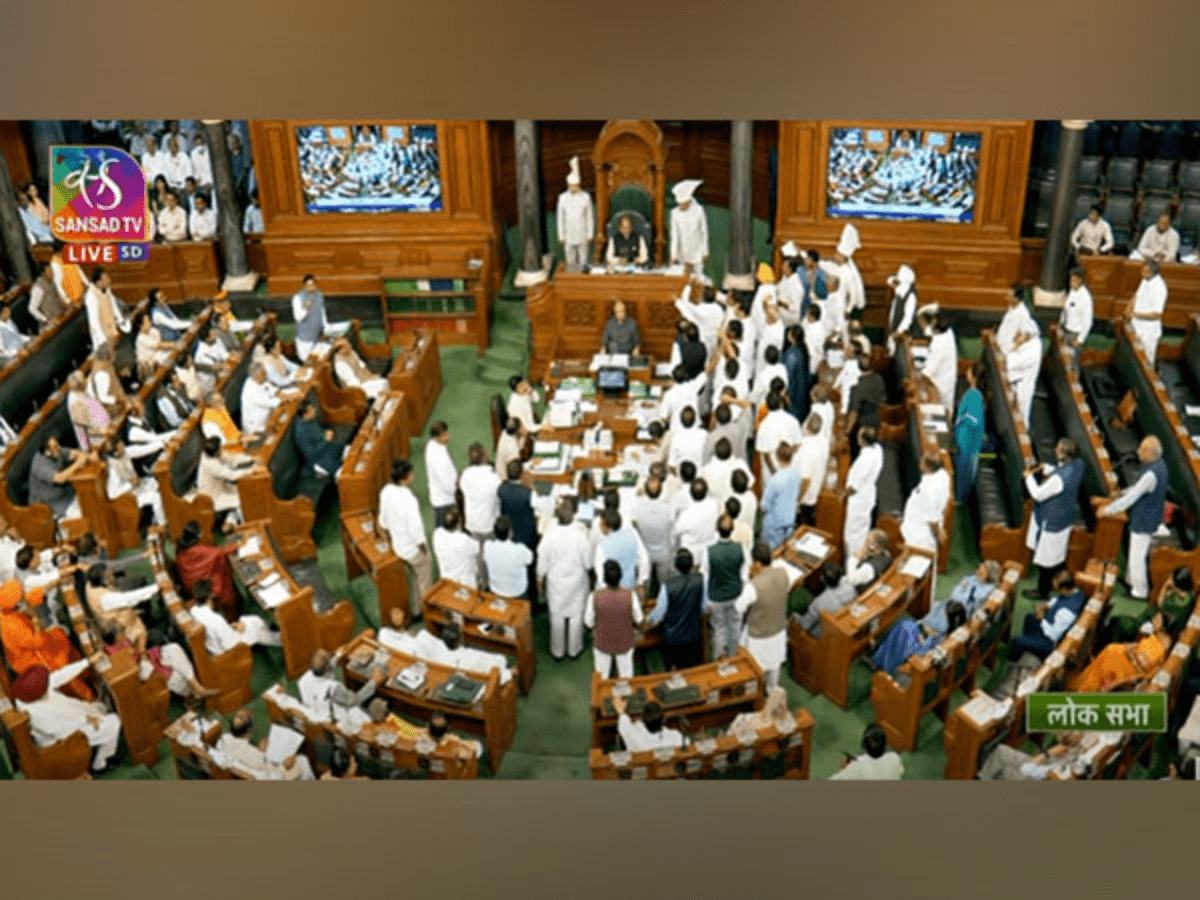
Just as we need reforms in many other areas, Parliament needs reforms urgently.
The BJP opposed the earlier Congress Governments precisely as the Congress is following now. It includes walkouts, running to the well of the House with placards, shouting slogans, etc., which could attract the public and media attention. The direct T.V. telecast also makes members play at the gallery.
The face-off between the adamant Treasury Benches and the belligerent Opposition continues over two controversial issues. The first concerns Congress leader Rahul Gandhi’s recent alleged defamatory comments about the Modi government while addressing a meeting in the U.K. Strangely, the treasury benches are demanding, “Rahul Gandhi Sadan mein aao, sadan mein aakar maafi mango (Rahul Gandhi come to the House and apologise in the House).”
The second comes from the opposition, which demands a Joint Parliamentary Committee (JPC) probe into the Adani-Hindenburg issue. The Adani issue had been simmering for some time, but the Government has been unwilling to discuss it in the House. Adani has become one of the wealthiest men in the world in just nine years.
The second half of the budget session opened on March 13. The row has become intense now, with the Opposition taking the issue to the streets. The Congress also gave a privilege notice against Prime Minister Narendra Modi in Lok Sabha.
Reiterating the Government’s stand, Commerce Minister Piyush Goyal said, “A member of this House ( meaning Congress leader Rahul Gandhi) went abroad and made defamatory comments about this House. He has to tender an apology. And how these people (some opposition MPs) who are protesting and carrying placards in the House should be acted against; in my opinion, they should be suspended.” Rahul Gandhi and
This brings us to the larger question of Parliament’s functioning. There are enough checks and balances. Parliament’s liberal framework provides many opportunities for vigorous debate, discussion, and dissent. The Question hour, Short duration discussion, adjournment motions, Calling attention notice, and other rules give a chance to hold the Government accountable.
Political parties must replace disorder, disruption, and delay in legislation with debate, discussion, and decision in a democracy. Politicians can differ in their opinions and have a right to protest. The adage is while the Opposition should have its say, the Government should have its way.
Historically, there was a degree of homogeneity in both Houses in the fifties and sixties. Many members like Piloo Modii enlivened the House with their repartees, humour, and healthy debates while maintaining the dignity and decorum of the House.
Congress shrank since the eighties while others, including regional parties, grew, leading to coalition politics.
Another area for improvement is the duration of sittings. Most state legislatures sit for barely 30 days a year. In some, like Haryana and Punjab, the average is about a fortnight. The Parliament spends less time on legislative business resulting in lawmakers spending less time on law-making.
The first three Lok Sabhas sat for an average of 120 days a year. The Lok Sabha spent less than 10 minutes to pass a law, and the Rajya Sabha less than half an hour.
The National Commission to Review the Working of the Constitution recommended that Lok Sabha should have at least 120 and Rajya Sabha 100 sittings. A single minute in Parliament leads to an expenditure of Rs. 2.5 lakhs approx to the exchequer.
The former chief justice N.V. Ramana recently lamented how Parliament passed laws without deliberation and debate. The judiciary interprets the law and always looks for the discussion before passing the law. The presiding officers of both Houses have time and again urged the members to maintain the dignity of the House in mind.
There should be a complete revamp of the rules to make clearing legislation and discussion on issues open, transparent, and outcome-oriented.
Secondly, political parties should choose eminent men and women as members.
Thirdly, new members should be given adequate time to participate in the proceedings.
Fourthly, the party leaders should focus more on Parliament’s functioning as they are also stakeholders.
Fifthly, Question Hour should not be disturbed as that is when Government answers many questions. The cancellation of Zero Hour and Question Hour indicates that parliamentary reforms are urgently needed.
Sixthly, presiding officers should be given more teeth.
Seventhly, accommodation and negotiations should be part of the conduct of the House.
Eighthly, new members should be trained to understand the House’s rules and regulations.
The parliamentary committees have gradually decreased their number of sittings. The Government also only refers some pieces of legislation to the committee.
A healthy democracy needs a fit functioning Parliament. Indian democracy has matured over the years, and it is time to make some necessary corrective issues.
